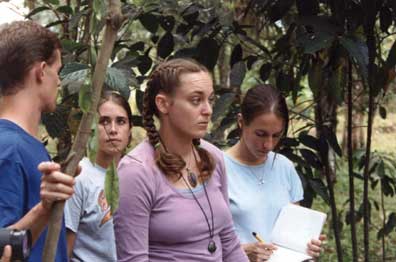
Few do not represent the whole By Dominican Republic RPCV Elizabeth Yehaskel
Few do not represent the whole By Dominican Republic RPCV Elizabeth Yehaskel
I was a volunteer in the Dominican Republic from 1996 to 1998. I had friends who were assaulted, and I had a friend who died there. In these cases, which I believe represent the large percentage of cases that Carollo chose not to report on, Peace Corps handled the situations effectively, as did the fellow volunteers who support one another as part of their job.
I respect the stories from volunteers that Carollo chose to focus on. However, I find those isolated accounts an unfair way to represent the whole organization. I also was shocked to see how often Carollo chose to only tell part of the truth to lead readers to his twisted images of Peace Corps life. Perhaps Carollo's goals were only to improve Peace Corps focus on safety, but as a former volunteer and a writer, I have to question the manner in which he misleads readers about the organization as a whole and the experience that most volunteers have.
The most blantant misperception Carollo focuses on is that Peace Corps disguises the dangers and risks of being a volunteer, and in doing so has been effectively luring innocent volunteers into their organization to be raped, looted, and abused by third world countrymen. However, if you go to the Peace Corps website, it states that "because Volunteers serve worldwide, sometimes in very remote areas, health and safety risks are an inherent part of Volunteer service. Volunteers can reduce these risks by following recommendations for locally appropriate behavior, exercising sound judgment, and abiding by Peace Corps policies and procedures." Even the classic tagline for the organization makes it clear that being a volunteer is not going to be a picnic: "The toughest job you'll ever love."
Every volunteer is educated about the dangers they could face. They are smart adults who understand that the third world, by definition, is going to be poor, dirty, dangerous, and corrupt. Any person who leaves for El Salvador thinking it is going to be as safe as the US has not paid any attention to the information provided by the Peace Corps, nor have they bothered to talk to any former volunteers who served there. You receive information from Peace Corps, and they also encourage you to educate yourself before shipping out. Peace Corps helps direct volunteers to sources of information to address their concerns. Training also covers safety in much more detail.
I have been in touch with many returned PCVs since the publication of this series, and everyone I've corresponded with has been upset with Carollo's portrayal of the Peace Corps, including some assault victims. Though a westerner without third world experience might be horrified to hear that "men - young and old - walk with machetes in their hands or strapped to their waist," Carollos fails to point out the key fact that these men are all farmers. They carry their machetes as engineers carry their laptops - they are tools of their trade. As an agriculture volunteer, I had a machete strapped to my waist everyday as well. Yet such clarification would not serve the author's purpose, I suppose. I see no reason why he wouldn't have provided such important explanations, except that he wanted to play on the shock value of describing men running amok with big knives.
I am working on op-ed pieces to send around to all the papers who have published this story, and I encourage the multitude of returned Peace Corps Volunteers who take issue with this series to do the same. Mr. Carollo has a right to his opinion, but I'm disappointed that he chose to use a small percentage of cases to illustrate a much larger picture. If the rest of the picture were filled in, I suppose Mr. Carollo wouldn't have such a shocking read to offer. I can only hope that the byline is worth risking the reputation of an organization that has done so much good for people here and abroad for 42 years.
